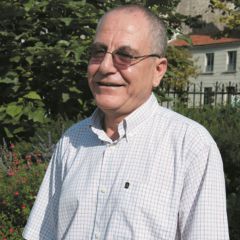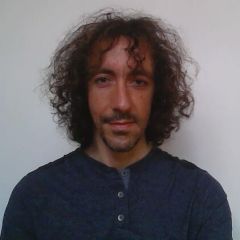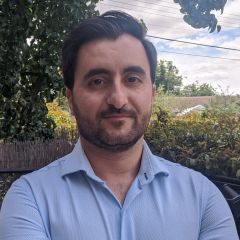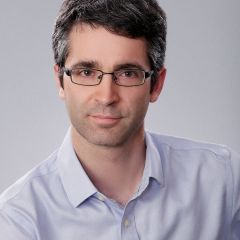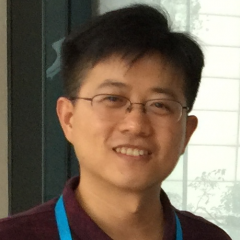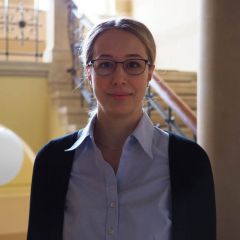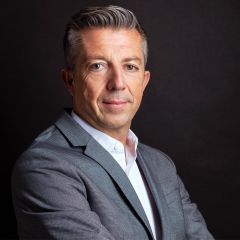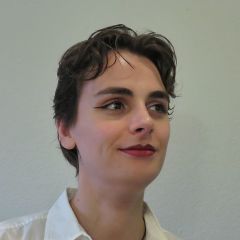About the Tour de l’IGS Stops
The Tour de l’IGS is a series of virtual workshops on relevant topics to the IGS membership, stakeholders and GNSS community in general. These events will be hosted several times a year and will cover a wide range of topics including space-borne and ground-based instrumentation, technology development, scientific and societal applications, etc.
Virtually through WebEx, in an around-the-world clock format. Please stay tuned for the next stop.
Participants will receive the meeting link upon completion of the registration. By participating in this workshop, participants agree to follow the IGS Virtual Workshop Code of Conduct.
Agenda
Tour de l’IGS 7th Stop: Spotlight on Africa
04 June 2025, 1200-1520 UTC
Virtual Organising Committee: Fernand Balé (Bureau National d’Etudes Techniques et de Développement, Côte d’Ivoire) and Babatunde Rabiu (National Space Research and Development Agency, Nigeria).
| Time (UTC) | Speaker | Title | |
| 1200-1210 | Fernand Balé Babatunde Rabiu Allison Craddock |
Welcoming Remarks | |
| 1210-1230 | Aslam Parker | The TrigNet CORS network | |
| 1230-1250 | Edinah Ahebwa | Uganda’s Contribution to the IGS Network | |
| 1250-1310 | Olusegun Jonah | Need for a Continuous Network of GNSS Receivers in Equatorial and Low-Latitude Africa – the CONGA Network | |
| 1310-1330 | Zouheir Fatnassi | Data Availability Efforts in Tunisia | |
| 1330-1350 | Andre Nonguierma | Unification of Africa’s Coordinate Systems: The AFREF Programme as a Necessity for Its Development | |
| 1350-1410 | Abuduganiyu Adeyemi Adebomehin | Nigerian Reference Frame: Update and GNSS data services | |
| 1410-1430 | Lazarus M. Ojigi | Bridging the Gaps in GNSS Capacity Development and Data Sharing for the Realisation of African Geodetic Reference Frame | |
| 1430-1450 | Camille Martire | Introducing the IGS: the IGS Data, Products, and Benefits, and How to Participate in the IGS | |
| 1450-1520 | Final Remarks | ||
Meet Our Speakers
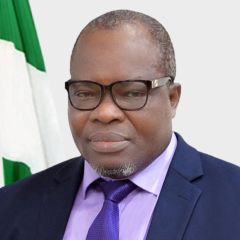
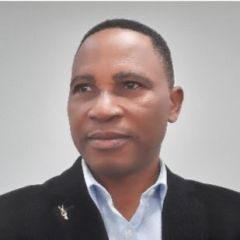
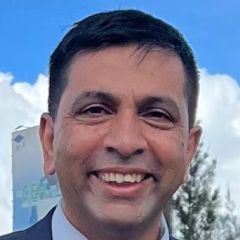
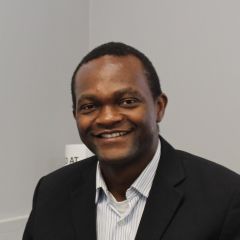

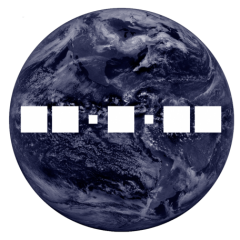
Tour de l’IGS 6th Stop: Galileo Constellation Spotlight
23 May 2023
Organized with support from Navigation Support Office of ESA’s European Space Operations Centre.
Presentation |
Speaker |
PDF link |
Video link |
|---|---|---|---|
| Welcome Remarks, Housekeeping Notes | Werner Enderle (ESA), Léo Martire (NASA JPL) | — | |
| Galileo System | David Ibanez (ESA) | ||
| Galileo Services | Ignacio Fernandez Hernandez / Juan Pablo Boyero (European Commission (EC)) | ||
| Galileo Applications | Giovanni Lucchi (EUSPA) | ||
| Questions Session 1 | — | — | |
| Metadata | Francisco Gonzalez (ESA) | ||
| Galileo Geodetic Reference Frame | Erik Schoenemann (ESA) | ||
| Galileo Precise Orbit and Clock Determination | Francesco Gini (ESA) | ||
| Questions Session 2 and Closing Remarks | — | — |
Meet Our Speakers
Tour de l’IGS 5th Stop: GNSS for Natural Hazards in the South Pacific
14 February 2023
This 5th stop focuses on how geodetic and GNSS infrastructures can support early warning systems for natural hazards, in particular for Pacific communities. To view the abstract for each presentation, visit Tour de l’IGS 5th Stop Agenda Abstracts or click the “View Abstracts” button below.
Organized with support from the Group on Earth Observations Geodesy4Sendai Pilot Initiative.
Presentation |
Speaker |
PDF link |
Video link |
|---|---|---|---|
| Introductory Remarks, Housekeeping Notes | Léo Martire (NASA JPL) | ||
| GNSS Tsunami Early Warning for the South Pacific | John LaBrecque (GGOS Geohazards Focus Area) | ||
| A nation-wide tsunami inundation and damage forecast system in Japan | Shunichi Koshimura (International Research Institute of Disaster Science, Tōhoku University) | ||
| GNSS Infrastructure and Technologies to Support Tsunami Early Warning System | Viliami Folau (Ministry of Lands & Natural Resources, Tonga) | ||
| Australian perspectives on the use of GNSS for Tsunami Warning | Simon McClusky (1), Adrienne Moseley (1), Phil Cummins (1), Shin-Chan Han (2), John Dawson (1) ((1) Geoscience Australia, (2) University of Newcastle) | ||
| Pacific Sea Level and Geodetic Stations for Natural Hazards | Andrick Lal (SPC (Pacific Community)) | ||
| GNSS for Natural Hazards in Aotearoa New Zealand | Elisabetta D’Anastasio (1), the GeoNet team, B. Fry, John LaBrecque (2) ((1) GNS Science, (2) GGOS Geohazards Focus Area) | ||
| Concluding Remarks, Further Discussion | — | — |
Meet Our Speakers
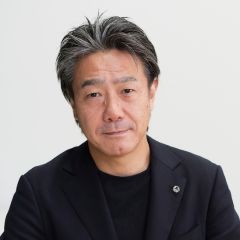
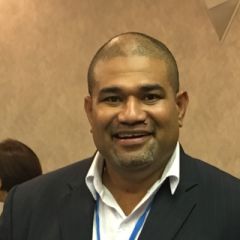
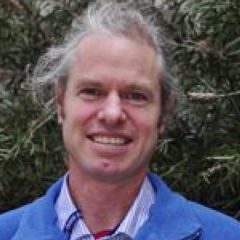
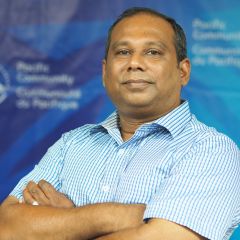
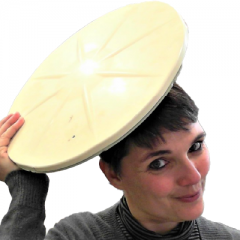
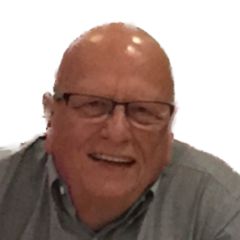
Tour de l’IGS 4th Stop: BDS Constellation Spotlight
27 September 2022
The 4th stop focuses on the latest progress of the BDS constellation. BDS is actively promoting international cooperation in an all-around way. In the 4th Tour de l’IGS, GNSS users could know the special services provided by BDS, including high-precision PPP-B2b service and Short Message Communication. This 4th stop will provide information on BDS featured services, BDS data usage, and the performance of BDS data processing.
IGS Scientific Organizing Committee for this event: Prof. Jianghui Geng and Prof. Qile Zhao, Wuhan University
Presentation |
Speaker |
PDF link |
Video link |
|---|---|---|---|
| Introduction and instructions to participants/Welcome Remarks | Prof. Jianghui Geng (Wuhan University, IGS Data Center Representative, IGS PPP-AR Working Group Chair), Dr. Léo Martire (on behalf of the IGS Central Bureau) and Prof. Qile Zhao (Wuhan University, IGS Governing Board) | — | |
| BDS PPP-B2b Service | Dr. Jun Lu (China Satellite Navigation Project Center (CSNPC), Deputy Chief) | ||
| BDS Network Analysis in GAMIT | Prof. Tom Herring (MIT, IGS Analysis Center Coordinator) | ||
| Official BDS Satellite Antenna Phase Centers | Dr. Jing Guo (Wuhan University) | ||
| BDS Orbits and Clocks | Dr. Peter Steigenberger (German Aerospace Center, IGS Multi-GNSS Working Group Member/IGS Associate Member) | ||
| BDS Coordinate Reference Frame | Dr. Shanshi Zhou (Shanghai Astronomical Observatory) on behalf of Prof. Xiaogong Hu (Shanghai Astronomical Observatory) | ||
| BDS Short Message Communication | Prof. Xiangwei Zhu (Sun Yat-Sen University) | ||
| Open Discussion and Final Remarks | — | — |
Meet Our Speakers
Tour de l’IGS 3rd Stop: GNSS processing based on IGS products
17 February 2022
The third stop will provide GNSS users (even without a geodetic background) an overview on the value by applying IGS products for their activities. It focuses on GNSS processing based on IGS products focusing on geometric applications, e.g., coordinate estimation. You will be provided with information on
- how to process and get ITRF coordinates for regional or local applications
- which aspects of GNSS data analysis are relevant in this context
- value of geodesy to other scientific/user applications
IGS Scientific Organizing Committee for this event: Rolf Dach and Arturo Villiger, AIUB
Presentation |
Speaker |
PDF link |
Video link |
|---|---|---|---|
| Introduction and instructions to participants | Allison Craddock, on behalf of the Central Bureau | — | |
| Observation equation and analysis strategies | Rolf Dach (AIUB, IGS Analysis Center Representative) | ||
| Overview on available IGS Products | Tom Herring (MIT, IGS Analysis Center Coordinator) | ||
| Processing a regional/continental dataset | Sonia Costa (SIRGAS) | ||
| Antenna Calibrations | Arturo Villiger (AIUB, IGS Antenna Working Group Chair) | ||
| Clock Models and Interpolation for PPP (pt. 1) | Michael Coleman (US NRL, IGS Clock Products Coordinator) | ||
| Clock Models and Interpolation for PPP (pt. 2) | Urs Hugentobler (Technical University of Munich) | ||
| Bias handling and ambiguity resolution | Stefan Schaer (swisstopo, Bias & Calibration Working Group Chair) | ||
| Troposphere Modelling | Johannes Böhm (Technische Universität Wien, IGS Associate Member) | ||
| Open Discussion and Final Remarks | — | — |
Meet Our Speakers
Tour de l’IGS 2nd Stop: Infrastructure
01 September 2021
The Second Tour de l’IGS is focused on IGS Infrastructure. This includes topics related to network stations and their configurations (instrumentation, monumentation, communications, etc), data flow, and other considerations involved in the collection and distribution of GNSS observational data and information.
Presentation |
Speaker |
PDF link |
Video link |
|---|---|---|---|
| Introduction and instructions to participants | Allison Craddock, on behalf of the Central Bureau | ||
| Community Welcome | Zuheir Altamimi (IAG) on behalf of the Governing Board | — | |
| IGS network, current and future work | Markus Bradke (GFZ-Potsdam, Chair, IGS Infrastructure Committee) | ||
| RINEX 4.0 | Ignacio “Nacho” Romero (ESA/ESOC, IGS RINEX Working Group Chair) | ||
| GeodesyML [Postponed] | Nick Brown (Geoscience Australia) | — | — |
| Highlights from CDDIS | Pat Michael (NASA GSFC, IGS Data Center Coordinator) | ||
| How to become an IGS Station? | David Maggert (UNAVCO, IGS Network Coordinator) | ||
| Updates to the Site-Log Manager (pt. 1) | Robert Khachikyan (Raytheon Technologies, IGS Central Bureau System Engineer) | ||
| Updates to the Site-Log Manager (pt. 2) | Benjamin Juarez (NASA JPL California Institute of Technology, IGS Central Bureau Information Systems Intern) | ||
| Open discussion and final remarks | — | — |
Meet Our Speakers
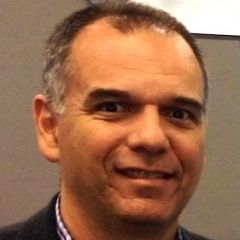
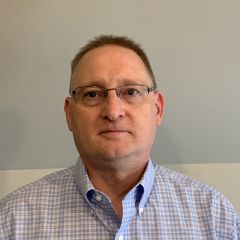
Tour de l’IGS 1st Stop: repro3
02 June 2021
The first is a session fully dedicated to the #ITRF2020 and the outcomes of the activities of Repro3. To learn more about Repro3, visit the Repro3 announcement page.
Presentation |
Speaker |
PDF link |
Video link |
|---|---|---|---|
| Introduction and instructions to participants | Mayra Oyola, on behalf of the Central Bureau | ||
| Community Welcome, why is repro-3 important for the IGS? | Felix Perosanz (CNES, Chair, IGS GB) | ||
| Terrestrial frame solutions from the third IGS reprocessing: the IGS contribution to ITRF2020 | Paul Rebischung (IGS Reference Frame Coordinator, IGN) | ||
| Highlights of IGS Contribution to ITRF2020 | Zuheir Altamimi (IAG) | ||
| Multi-GNSS orbit solutions from the third IGS reprocessing | Salim Masoumi (IGS Analysis Center Co-Coordinator, Geoscience Australia) | ||
| Repro3 PPP-AR products | Simon Banville (PPP Working Group Chair, NRCan) | ||
| Multi-GNSS clock combinations on the repro3 using their combination software | Jianghui Geng (Wuhan University) | ||
| Rigorous propagation of the Galileo-based terrestrial scale | Susanne Glaser (GFZ-Potsdam) | ||
| Open discussion and final remarks | — | — |
Meet Our Speakers
